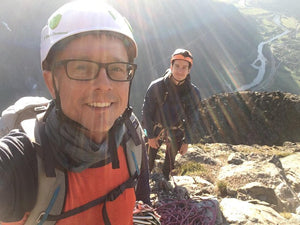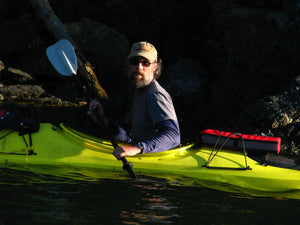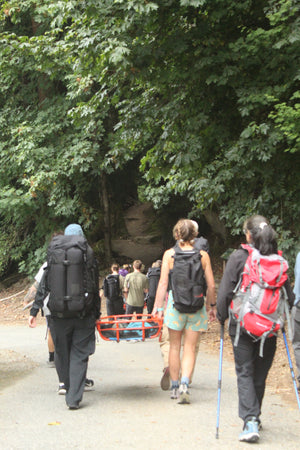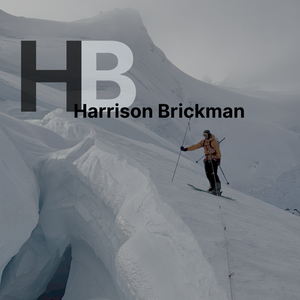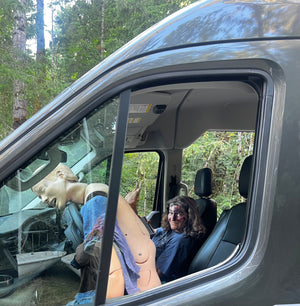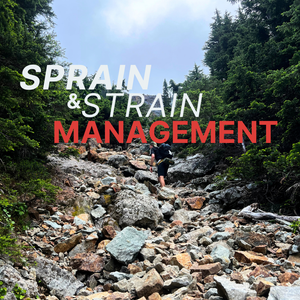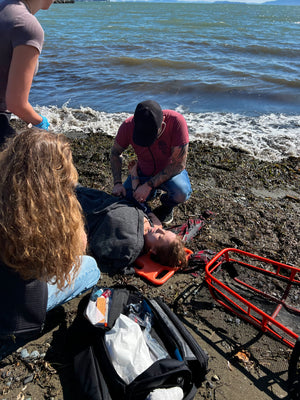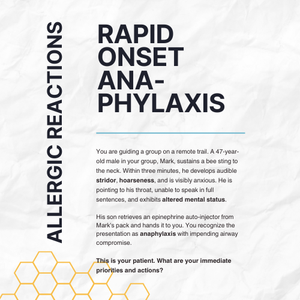The Life He Chose: 30 Years of Guiding on Water and Snow
Jun 10, 2019
For three decades, Tim Abate has built a life in the great outdoors, a career that has flowed from the open ocean to the snowy slopes of the mountains. Today, you can find him guiding for Moondance Sea Kayak Adventures or working aboard the Motor Vessel David B on small ship cruises with Northwest Navigation Co. in Alaska. While his roles have been varied, the underlying motivation has remained the same since he was a boy.
It started with two powerful, contrasting images from his youth. The first was his father, who worked in a large concrete building at a job he didn't enjoy. The second, a vivid memory of a fisherman. "I remember watching him walking up the gangplank from the dock in his tattered jeans, flannel shirt and weathered skin and ball cap," Tim recalls. "I felt this is the life for me."
He pursued that life with unwavering focus. For his first 15 years, he worked on various passenger vessels and in the commercial fishing industry, earning his US Coast Guard Captain’s License along the way. In 2001, he relocated to Bellingham, Washington, and began a new chapter, spending the next 15 years in chairlift operations at the renowned Mt. Baker Ski Area.
Through all these seasons and settings, one passion remained a constant. "One thing I have done consistently over the 30-year span of my career is worked as a sea kayak guide," Tim says. "After working both in the mountains and on the sea, I have found that my heart is with the sea."
It’s the essence of these remote places that draws him in. "Working in remote areas teaches self-reliance. Curiosity and solitude are what draws me there," he explains. He sees his role as a guide as a way to share that experience, helping others step out of their daily routines. "When we choose to go sea kayaking or ride a chair lift, for what may be the first or only time, that becomes a memory. Helping people create memories of a lifetime... is something I enjoy."
With decades of experience comes the wisdom of preparedness. "After 30 years... I have been involved in some emergencies," he admits. "In my early days, my training was basic and minimal." Over the years, he pursued higher levels of training, from a Wilderness First Responder course in 2004 to an Outdoor Emergency Care course in 2014. He found our Wilderness First Aid (WFA) course to be the perfect way to refresh his knowledge after prior certifications had expired.
For Tim, this training isn't about the drama of an emergency, but the quiet confidence it provides. It’s the essential tool that allows him to focus on his true craft: being a conduit for joy in the wild places he calls home.
